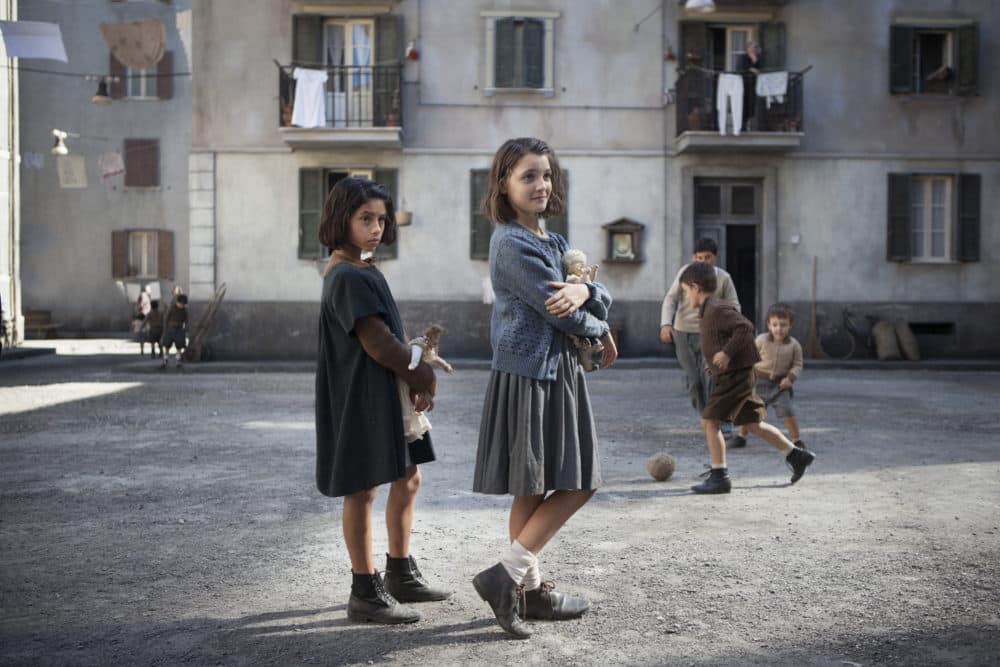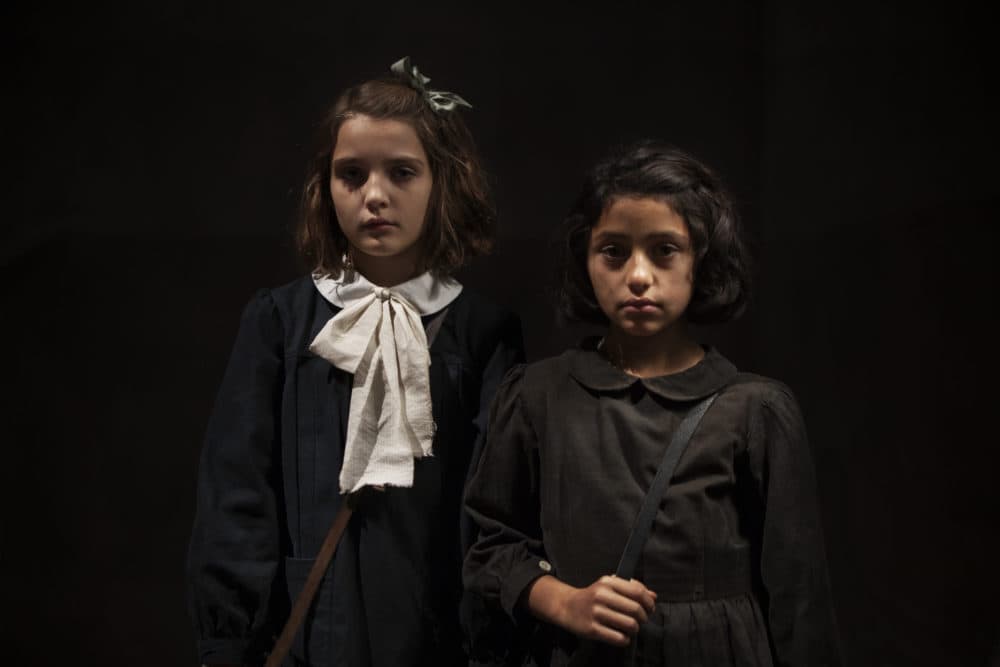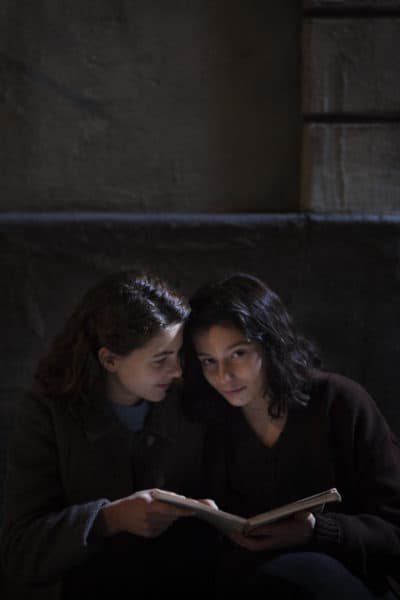Advertisement
Review
With 'My Brilliant Friend,' TV Advances Its Case For A New Form Of Brilliance

Women in movies rarely turn out to be Keyser Söze or craft the impossible diamond heist. If women do pop up as “masterminds” they tend to be demonized (“Misery,” “Fatal Attraction”) or come in second (“Ocean’s 8,” “Ghostbusters” round two). Occasionally women’s genius is used as a shocking plot twist. OMG, a woman spy? I never saw that coming!
Meanwhile, television has become a slightly more forgiving and fertile ground for brilliant women. Because the serial form favors character and relationship development, even leads in procedural crime dramas like “The Killing” or “The Fall” have the chance to craft memorable roles. Those characters play off male partners, like Claire Underwood does in “House of Cards,” but they’re among a growing rank of cunning women on TV.
Punishment for “craziness” still lingers (can we please cut Carrie Mathison some slack?) but an exciting trend that unites a slew of dissimilar shows has been emerging: Their lead characters’ braininess drives the plot. In “Damages” and “Revenge,” two shows from earlier in the decade, shrewd women exchange reins, while in the still-running “The Marvelous Mrs. Maisel” one woman attempts to harness her nimble mind on and off the comedic stage. (Fingers crossed she stays sane.)
With these shows and several others, a new form of brilliance is taking shape, one that evolves not just from conquering enemies or solving crimes, but also from cultivating and learning from relationships. Case in point, the hotly anticipated adaptation of Elena Ferrante's "My Brilliant Friend," premiering Sunday, Nov. 18 on HBO. (Shot in Italian and subtitled in English, it’s also HBO’s first foray into foreign-language production.)

“My Brilliant Friend” is the first of Ferrante’s internationally beloved four-book series about a thorny friendship between two girls brought up in rough and tumble post-war Naples. They’re both wildly smart and they burn with an unspoken rivalry. The darkly beautiful Lila gets the “prize” of a traditional life — early marriage, staying put in Naples — while Elena, the narrator, has more freedom to pursue her studies and career as a writer. While the adaptation should not replace the novel (I am not usually an extremist on this matter, either), it delivers a freshly tantalizing vision of their multi-headed Hydra-like bond.
Told in eight one-hour chapters starting in early girlhood and ending in their teens, “My Brilliant Friend” takes several episodes to settle in. In the book, Elena describes her neighborhood with a gritty brutality you can almost taste. But here the few blocks they scarcely leave look fabricated. Especially in scenes shot outdoors, the dust of poverty shines nearly silver in manufactured light. But soon enough Ferrante’s fundamentally good yarn dulls that sheen. Small moments like a school competition show what happens when one family rules the neighborhood.

One day Lila convinces Elena (Lenù for short) to join her in confronting the ominous Don Achille. He shrugs them off with money they later use to buy “Little Women,” which they read until the pages fall out. Their tenderness stands out in that instance because more often, their friendship develops tentatively, almost imperceptibly. When Lila purposefully gets Elena in trouble, a cut to her expression storms with mystery. Elena labors more under her character’s somber, silent interiority. (Both girls are played around age 10 and 15 by two different actors.) In the New York Times, Ferrante (who offered comments to director Saverio Costanzo throughout production), wisely assessed “the young Lila ‘perfect’ and the child Lenù ‘effective’ at setting up the narrator’s ‘indecipherable’ quality.”
Ferrante’s books spark “Ferrante Fever” precisely because of this quality, one she also calls “density.” Heavy, right? It’s the stuff the bookish among us crave. The transfer to a visual medium leaves much of the narrator’s deeply satisfying full-circle reasoning on the page, where she would make observations like, "I traced lines between moments and events distant from one another, I established convergences and divergences." In print, Elena may be brilliant but she’s not always right. She uses writing to understand herself and world around her, a constant work in progress.
“My Brilliant Friend” rewards patient viewers because as the episodes build, so does Elena’s confidence in her flickering, alive point of view, though inextricably tied to her friend's. An allegiance to either Lila or Elena will shift. Because the notion of pure competition is a facade. We are not watching which detective will identify the murderer first (“True Detective”) or which power-drenched man will out bluster another, like on the hilarious farce “Billions.” The plot here is life, how people change, and misread each other, make the most compromised choices, and then alter their course and idea of who they are. If we’re lucky, this kind of plot unfolds over generations.
In this way, “My Brilliant Friend” forwards the case for women’s brilliance as TV’s terrain. It takes time to tell the epic story of a life-long friendship and time is one feature TV has over movies in spades. I love “The Philadelphia Story” as much as the next gal but are 112 minutes enough to really dig into Tracy Lord’s psyche? Movies leave us with more symbols than scenes. In well-made TV we get both. That’s why entire college courses focus on “Buffy The Vampire Slayer.”
If we’re really lucky, TV can show us how intelligent girls and women propel each other into a more complete understanding of all relationships, from the personal to the political. We get a taste of that with “My Brilliant Friend.” If the series continues, it’s destined to be classic viewing for those who want more smart women to tell their story.
